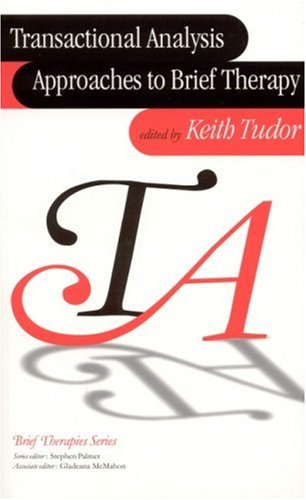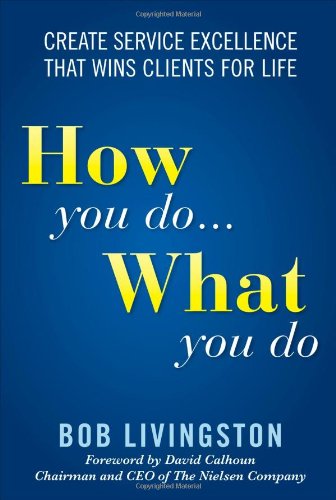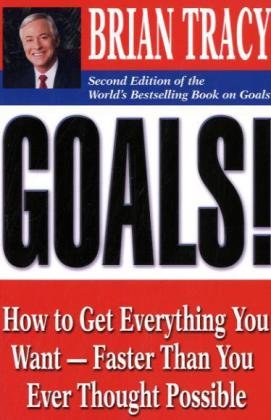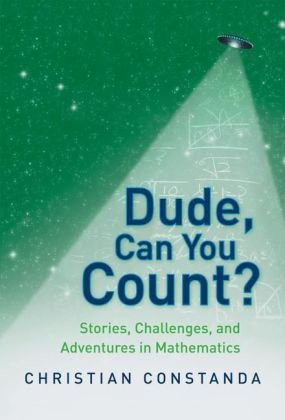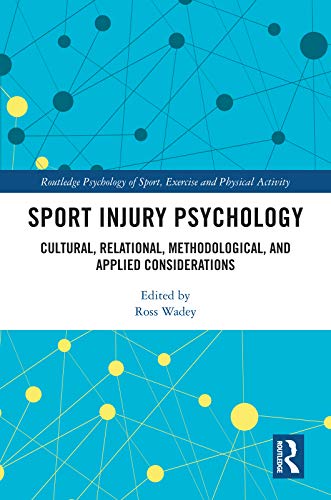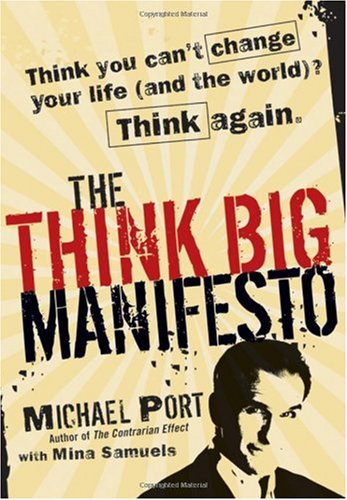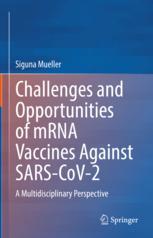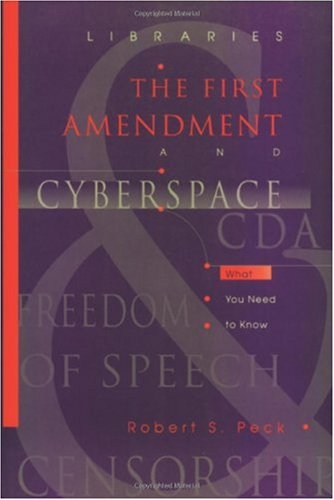موضوعات
آموزش و پرورش
ادبیات و زبان
پزشکی، دندانپزشکی و داروسازی
تاریخ و جغرافیا
داستان و رمان
دیگر
دین و فلسفه
روانشناسی
ریاضیات و آمار
سلامتی، تناسب اندام و رژیم غذایی
شیمی و پلیمر
علوم اجتماعی و حقوق
علوم زیستی و بیوتکنولوژی
فیزیک و نجوم
کامپیوتر و اینترنت
کتابهای کودکان و داستان
کسب و کار و اقتصاد
کشاورزی و دامپزشکی و غذا
معماری
مهندسی و فناوری
هنر و تئاتر
محصولات
Transactional Analysis Approaches to Brief Therapy: What do you say between saying hello and goodbye? (Brief Therapies series) - PDF
نویسندگان: خلاصه: Of all the approaches to therapy, Transactional Analysis (or TA) is arguably one of those most suited to time-limited work. At a time when short-term therapy is increasingly dominant as a form of practice, Transactional Analysis Approaches to Brief Therapy provides an insightful guide which both informs and challenges. Rather than a single theory, TA has developed as a group of four schools which share a common philosophy, but place different emphasis on what occurs during the therapeutic process. Written by therapists at the leading edge of developments in TA, the book presents and differentiates each of these four approaches. Through transcripts and commentaries, it shows how theory applies to practice, for examplLiving Well with Chronic Fatigue Syndrome and Fibromyalgia: What Your Doctor Doesn't Tell You...That You Need to Know - PDF
نویسندگان: خلاصه: From the author of Living Well With Hypothyroidism, a comprehensive guide to the diagnosis and treatment of chronic fatigue syndrome and fibromyalgia--vital help for the millions of people suffering from pain, fatigue, and sleep problems. Recent studies indicate that 3 to 6 million Americans suffer from fibromyalgia--a chronic disorder characterized by widespread musculoskeletal pain, fatigue, and multiple tender points. This terrible condition is often accompanied by chronic fatigue syndrome, a persistent and debilitating sense of exhaustion that is estimated to affect 800,000 Americans--twice the number of people with multiple sclerosis. Yet there are no official blood tests of diagnostic procedures that can confirm that yes, you definitely have these conditions, and in fact, a whole segment of the medical world doesn't even believe these two diseases actually exist. In addition, the few books that are on the market tend to focus on single solutions or eschew conventional and pharmaceutical approaches, which could alienate readers who use conventional medicine in whole or part. In her trademark accessible, easy-to-follow style, patient advocate Mary J. Shomon integrates the latest findings regarding these misunderstood conditions. Highlighting the pros and cons of the antibiotic, metabolic/endocrine, hormonal, musculoskeletal, and many other approaches to treatment, Shomon explores the fads and viable alternatives--both conventional and alternative--and provides helpful, clear solutions to help sufferers of fibromyalgia and chronic fatigue syndrome. At various points since 1995, Mary J. Shomon has been diagnosed with chronic fatigue syndrome and fibromyalgia. Since then, she has transformed her health challenges into a mission as a nationally-known patient advocate. She has worked for more than 20 years in writing, advertising, public relations, and communications and is the founder and editor-in-chief of several thyroid, autoimmune, and nutrition newsletters, as well as the internet's most popular thyroid disease website, www.thyroid-info.com.How You Do... What You Do: Create Service Excellence That Wins Clients For Life - PDF
نویسندگان: خلاصه: Between the challenges of escalating competition, well-informed clients, and dismal customer service, today's marketplace is becoming more and more crowded. The result is that your clients have more influence and choices than ever before. If you or your organization do not consistently satisfy and surpass their expectations, your clients will take their buying power elsewhere. It's that simple. But by establishing service excellence as your top strategic and cultural priority, you will foster the strong relationships needed to win--and retain--loyal clients. In this breakthrough book, customer service expert Bob Livingston gives you practical tools for transforming your approach to serving clients by strengthening “how you do what you do.” Whether you're a business leader, a client service executive, a sales manager, or an individual, you can differentiate yourself from competition by adopting Livingston's simple yet proven roadmap for achieving Service Excellence. In How You Do . . . What You Do, Livingston imparts a clear, step-by-step blueprint for transforming your culture, attitudes, and behaviors by illustrating how to: Develop and live your Purpose and Values Understand your clients' soft needs, and create plans to satisfy them Seek continuous improvement by stimulating creativity and innovation Keep your service-oriented culture growing Create a passion for Service Excellence Livingston draws upon a lifetime of experience in which he has achieved measurable success helping many companies shape their service cultures--most notably CROSSMARK, an international consumer products sales and marketing agency, whose remarkable transformation stands out as one of the strongest proof statements for this methodology. Throughout, Livingston benchmarks other great companies renowned for their service excellence, including Accenture, Henry & Horne, ECRM, The Nielsen Company, TBWA\Worldwide, Four Seasons, and many others. Properly executed, this compelling and inspirational approach to service virtually guarantees the client loyalty that will set you apart from competition, and distinguish you by How You Do . . . What You Do.Goals!: How to Get Everything You Want -- Faster Than You Ever Thought Possible, Second Edition - PDF
نویسندگان: خلاصه: Based on more than 20 years of experience and 40 years of research, this book presents a completely updated and practical, proven strategy for creating and meeting goals that has been used by more than 1 million people already in its first edition. Author Brian Tracy again explores the seven key elements of goal setting and the 12 steps necessary to set and accomplish goals of any size. Using his trademark simple language and real-life examples, Tracy shows how to do the crucial work of determining one's strengths, values, and true goals. He explains further how to build the self-esteem and confidence necessary for achievement; how to overpower every problem or obstacle; how to overcome difficulties; how to respond to challenges; and how to continue moving forward no matter what happens. The book's revised and updated "Mental Fitness" program of character development shows readers how to become the kind of person on the inside who can achieve any goal on the outside.Dude, Can You Count? Stories, Challenges and Adventures in Mathematics - PDF
نویسندگان: خلاصه: Imagine algebra class meets The Hitchhiker’s Guide to the Galaxy… Meet JJ, an unusual character with a unique vantage position from which he can measure and monitor humanity’s progress. Armed with a device that compels all around it to tell the truth, JJ offers a satirical evaluation of our attitudes to numeracy and logic, touching upon several aspects of life on Earth along the way, from the criminal justice system and people’s use of language to highway driving and modern art. A collection of mathematically-flavored stories and jokes, interlaced with puzzles, paradoxes and problems, fuse together in an entertaining, free-flowing narrative that will engage and amuse anyone with an interest in the issues confronting society today. JJ demonstrates how a lack of elementary mathematical knowledge can taint our work and general thinking and reflects upon the importance of what is arguably our most valuable weapon against ignorance: a sound mathematical education.Sport Injury Psychology: Cultural, Relational, Methodological, and Applied Considerations (Routledge Psychology of Sport, Exercise and Physical Activity) 1st Edition, - Original PDF
نویسندگان: خلاصه: Written by a team of international experts and emerging talents from around the world, Sport Injury Psychology: Cultural, Relational, Methodological, and Applied Considerationschallenges the status quo of the field of sport injury psychology and opens new and exciting future research trajectories by critically considering: How to evolve from an individual focused and single, scientific discipline into a cultural and relational focused and interdisciplinary discourse How to shift from the dominant positivist foundation towards a more inclusive scholarship with divergent epistemologies, theories, and methodologies How to replace the attempt to establish ‘best practice’ and desire for ‘clean’ findings with the need for continuous innovation and multifaceted applied experiences Each chapter stimulates debate and encourages theoretical, methodological, and/or applied diversification, and closes with future research directions that provide novel and rigorous programs of research that have the potential to advance the field of sport injury psychology into an interdisciplinary discourse that strives for and embraces collaboration between academic disciplines and with practitioners working in the field. Cutting edge, timely, and comprehensive, Sport Injury Psychology: Cultural, Relational, Methodological, and Applied Considerationsis essential reading for undergraduate students, postgraduate students, and more established scholars in the fields of sport communication, sports medicine, sport psychology, sports sociology, and other related sport science disciplines.The Think Big Manifesto: Think You Can't Change Your Life (and the World)? Think Again - Original PDF
نویسندگان: خلاصه: One evening, years ago, I was brainstorming with someother business consultants. We were all throwing out ideasabout how we wanted to brand ourselves. When I was puton the spot, I said the first thing that came to my mind,“I’m the guy to call when you’re tired of thinking small.”The entire room became silent, until one of the womensaid, “Yes, that is so you!” Still, I immediately second-guessed myself, worrying that the tagline sounded toocheesy, stupid, arrogant, or worse, wasn’t true.Yet the more I floated the phrase to others, the morepositive the response was. “You make us feel capable ofdoing bigger things,” people said. “That’s why we hang10 | The Think Big Manifestoaround you.” I had never fully realized the impact I washaving on other people. It created a cycle of accountabil-ity. If they were relying on me to inspire them to thinkbigger, then I needed to keep on thinking bigger. Untilthen, I had always tried to think big in my life—not thatit wasn’t a challenge, not that sometimes I didn’t thinksmall. But if other people were looking to me for theirmotivation to think big, it made it all the more importantthat I keep working hard at thinking big in my own life.Because my big thinking wasn’t just about me, nor shouldit be. Thinking big is about me, you, and so many otherpeople—reaching out, inspiring and being inspired, andworking together to meet the challenges of our times, tomake change, and to create new opportunities.An important point — so I ’ll repeat it right away — is thatI do not think big every day. I can’t. It’s unlikely anyonecould live by this manifesto every moment. But I try.This is not just our manifesto, the manifesto of everyonewho is and wants to think big, it’s my personal mani-festo, too. I want to live by this every day. And althoughit’s unlikely I can live up to quite that standard everyminute, publishing this manifesto and leading the ThinkBig Revolution are ways to hold myself to the standardof thinking big. Just as important, or even more so, toOncology: Genomics, Precision Medicine and Therapeutic Targets - Original PDF
نویسندگان: خلاصه: Provides complete information about cancer biology, drug targets, precision and personalized medicine Focuses on many aspects of cancer initiation and regulation processes with quality artwork Highlights the challenges in drug discovery and development with chemotherapeutic drugsLibraries, the First Amendment, and Cyberspace: What You Need to Know - PDF
نویسندگان: خلاصه: Too often misinformation about free speech is circulated as if it wereauthoritative. The final straw for me and the inspiration for thisbook was a panel discussion at a state library association convention.There, as a member of the audience, I was treated to a confidently ren-dered but distorted description of First Amendment law as it applies topublic libraries. As a legal matter, the speaker said, obscenity is some-thing you know when you see it. This was decidedly wrong as a state-ment of the law, and I was unable to await my own scheduled talk laterthat day. I stood up during the question period and explained what theU.S. Supreme Court had actually said about obscenity and how theConstitution requires substantial procedural safeguards to be followedbefore a librarian may adjudge material obscene and take the matter tocourt. In defense, the panelist, a nonlawyer, justified her statements asbased on what her city attorney had told her.Of course, few city attorneys have much experience with FirstAmendment law. Their loyalties may not run to civil liberties as much asto whatever powers hold sway locally. In such instances, libraries arestuck with advice that has a more political than legal basis. For toomany who provide that advice, the need to avoid controversy over-whelms fidelity to the law. Such political considerations, however,should not be part of the constitutional calculus—for the reasons toknuckle under to would-be censors are infinite and can only expandwith each new concession. The result of such a standard operating pro-cedure would then be an abandonment of the library’s very purpose andmission: to assist in the diffusion of knowledge.vI N T R O D U C T I O NNeither ignorance of the law nor frustration over its complexity oughtto deter compliance with the principles it sets out. Even though the law isfilled with subtle touchstones, guidelines, and three-part tests that courtshave difficulty applying, there are some basic and unimpeachable tenetsthat all can understand and act upon. Librarians and library policymak-ers, dedicated as they are to providing access to information, need an ac-curate basis upon which to base intelligent and legally appropriatepolicies about Internet access, as well as the other issues that librariesoften face. This book aims to provide that foundation.The development of constitutionally informed policies can ease someof the conflict that is bound to arise. To be sure, it will not end that con-flict because speech, the written word, and pictures have an unquench-able capacity to generate controversy. It is almost a guarantee thatwhatever policies are eventually adopted will still be matters of greatcontention, activating factions who object to the materials thus madeavailable or unavailable to the community. It is indisputable that li-braries have become the front lines in modern free-speech wars. Still, awell-conceived policy can absorb some of the pain that accompaniesthat unfortunate reality and make all the difference in the litigation thatmay well follow.The role of libraries at the center in the battle over the nation’s intel-lectual freedoms is a familiar and long-running one. Almost from themoment of inception for public libraries, vociferous debates have en-sued about material that someone or another has deemed inappropriatefor shelving. One of the most enduring controversies over a book in theUnited States has been over Mark Twain’s Adventures of HuckleberryFinn. As far back as 1885, the Concord, Massachusetts, Public Librarybanished the now-classic book as “the veriest trash” and “more suitedto the slums than to intelligent, respectable people.” 1 The book remainsenormously controversial to this day.As recently as October 19, 1998, the U.S. Court of Appeals for theNinth Circuit was forced to rule on yet another attempt to remove thatbook—this time from a mandatory high-school freshman reading list inTempe, Arizona. The court concluded that assignment of the book didnot violate the constitutional right to equal protection of the laws, norcould it be removed because it allegedly contributed to a racially hostilelearning environment.2 Huckleberry Finn has endured more than a cen-tury of controversy with no sign that the hackles it raises will abate.Cyberspace now poses additional challenges for libraries.آیا کتاب مورد نظر هنوز بر روی سایت قرار نگرفته است؟ جای نگرانی نیست! کافی است بر روی گزینه سفارش کتاب کلیک کرده و درخواست خود را ثبت کنید. در کمتر از چند ساعت کتاب شما را آماده خواهیم کرد.
